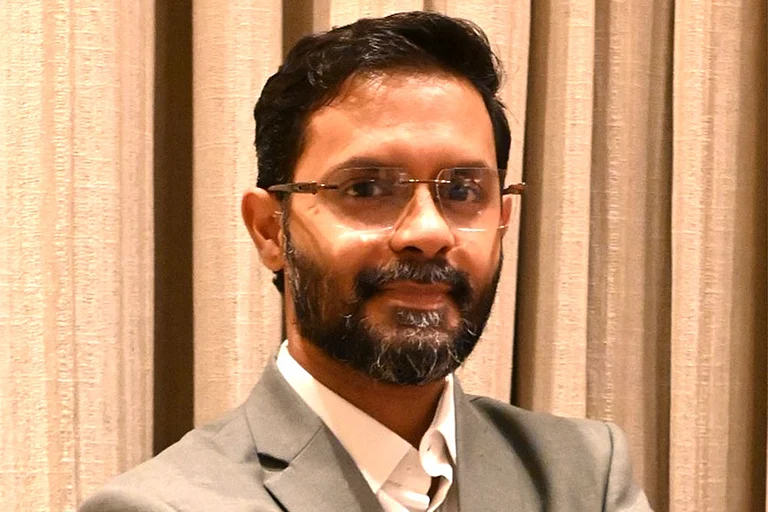Samir Arora, founder, group chief investment officer (CIO) and fund manager, Helios Capital shared his strategy to pick market gems in his keynote address at the third edition of the two-day Outlook Money 40After40 Retirement Expo in Mumbai on February 7, 2025.
According to Arora, the plain and straight strategy to find multi-bagger stocks is to eliminate the bad ones. “It is easier to know what is bad than to know what is good,” he said.
“Rejecting is better than accepting! That is the formula. The end result is you will get multi-baggers over time. If someone asks which stock will give the maximum return, we say we don't know. We have some 30-40 companies, and automatically there will be some out of these,” he said. That’s how, he said, he has found many (multi-bagger) stocks over time.
He elaborated on his investment strategy with an example. He said: “If I say that an employee steals money, he is bad. If an employee doesn’t steal money, it doesn’t mean anything. If you say that an employee goes to office on time and works hard, delivering on his job and comes home, is he a good employee? We do not know. He might be harassing women. But if he is harassing women, we do not ask whether he is doing a good job,” he said.
“All these factors are independent. If he is stealing money, we do not ask does he harass women? The first factor was enough to reject him. So it is easier to know what is bad. If a stock is very expensive, why do you want to know how is the management? Or if the management is a chor (thief), why do you want to know what is the price-to-earnings (P/E) ratio? There is no need,” he said.
Equities Beat Fixed Income Securities Over Long Term
Arora also pointed out that over a long time-frame, equities typically beat fixed income assets, such as bonds or fixed deposits.
Citing a book named Triumph of the Optimists: 101 Years of Global Investment Returns, Arora explained that the authors took about a 100 years of data on 15-16 countries between years 1900 and 2000 and found that over this time period, equities had beaten fixed income by an average of 5-6 per cent per annum.
“The equities market over time in all markets beat fixed income return by an average of 5-6 per cent per annum, which is very, very huge,” he said.
However, he added, “This does not happen smoothly. If it happens smoothly that every year you will get 5-6 per cent return higher per annum, then nobody will give any money to fixed deposit.”
India’s Market Has Beaten Warren Buffet’s Return In Last 20 Years
Arora also highlighted that Indian equity market in dollar terms has beaten ace investor Warren Buffett’s returns in the last 20 years.
“So it is not a bad market to be bullish,” he said.
Nobody Knows Anything About Anything
He also explained his strategy, emphasised on taking every experts’ advice with a pinch of salt, even his own, as he believes “nobody knows anything about anything.” Therefore, he emphasised on diversifying portfolio.
“Nobody knows anything about anything beyond a point.”
Explaining with an example, Arora said, “I bought Kotak Mahindra Bank’s shares in 2004 or 2003 and I have held it for 25 years. So the stock is up over 400 times. This is the proof that if you buy a good company and hold it for the long term, you make lot of money.”
“But nobody tells you how in 2003 you were supposed to find out that Kotak Bank is a good bank because Kotak before that was a broker. If he was a broker, who would have thought that he will be a good banker? Brokers, as you know, did not use to get the same level of respect at that time to say this guy will become a banker,” he added.
“There were tens of other banks that were there at that time run by bankers coming from successful banks before and now they are in their private sector banks. So how would you have known? Your ability to see the long-term is very difficult because the managements of the companies themselves don't know how much they will succeed or not succeed,” he said.
Don't Invest For Long-term, Invest For 2-3 Years
Arora also vouched for not staying invested for long-term, giving an example of Warren Buffet’s investment style.
“Some academics analysed Warren Buffet’s investments from 1980 to 2006, which were his best years of his life, and they found that he does not have a very long holding period. His average holding period was one year median. He, basically, sold off a large amount of them in less than two years,” he said.
















